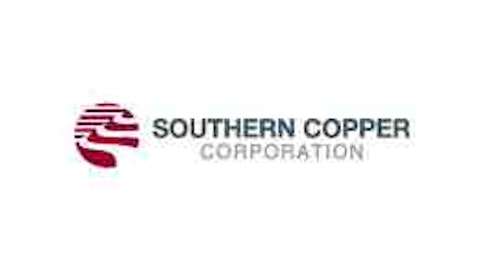The market has rewarded Freeport-McMoRan Inc (NYSE:FCX)’s stock today after the company announced that it plans to offer $1 billion in equity. As a result, the stock has spiked as much as 10% this afternoon. According to the copper mining behemoth, JP Morgan Securities LLC will serve as the sales agent of the offerings which will be made “from time to time”. The company plans to use the proceeds from the offering to address liquidity concerns. Last month, when it reported its second-quarter results, the firm disclosed a liquidity ratio of 1.84, down from 2.01 a quarter earlier. The company has been hit hard by the low commodity prices. Despite today’s appreciation, the stock is still down by more than 50% year-to-date. Last week, Freeport-McMoRan Inc (NYSE:FCX)’s stock jumped on the back of Morgan Stanley reiterating its ‘Overweight’ rating and saying that the sell-off of the stock in July was an overreaction.

Hedge funds, however, do not share the same opinion as Morgan Stanley as we will present later. Nonetheless, why do we follow hedge funds? Professional investors spend considerable time and money conducting due diligence on each company they invest in, which makes them the perfect investors to emulate. However, their returns on the whole have not been good for several years, underperforming the market. We analyzed the historical stock picks of these investors and our research revealed that the small-cap picks of these funds performed far better than their large-cap picks, which is where most of their money is invested and why their performances as a whole have been poor. A portfolio of the 15 most popular small-cap stocks among funds outperformed the S&P 500 Total Return Index by 95 basis points per month between 1999 and 2012 in backtesting. The exceptional results of this strategy got even better in forward testing after the strategy went live at the end of August 2012. A portfolio consisting of the 15 most popular small-cap stock picks among the funds we track has returned more than 123.1% and beaten the market by more than 66.5 percentage points since then, and by 4.6 percentage points in the first quarter of this year (see more details).
Also, before we analyze the hedge fund sentiment, let’s take a look at the insider trading in Freeport McMoRan. One of the most notable transactions is the acquisition of 60,000 shares by the Vice Chairman James Flores on June 3 and no sales of shares have been noticed since the end of 2014.
How have ‘hedgies’ been trading Freeport-McMoRan Inc (NYSE:FCX)?
Hedge funds are bearish on Freeport-McMoRan Inc (NYSE:FCX) as our data show. During the first quarter, 18 funds exited their positions, and another 31 investors disclosed holding $258 million worth of stock, down by 58.04% on the quarter. The decline of the aggregate value of holdings can be partly explained by a 17.04% fall of the stock’s price, but there was still a massive outflow of capital from the company. Moreover, just 1.31% of all outstanding shares of the firm were held by the hedge funds from our database at the end of March.
Mario Gabelli’s GAMCO Investors owned the largest stake in Freeport-McMoRan Inc (NYSE:FCX) by March 31 and further increased the holding to 2.73 million shares during the following three months. On the other hand, John Overdeck and David Siegel’s Two Sigma Advisors sold a significant stake in Freeport-McMoRan during the first quarter, divesting 1.19 million shares. Meanwhile, Phill Gross and Robert Atchinson of Adage Capital Management also dumped about 1.15 million shares.
Despite today’s healthy gain, the negative sentiment of hedge funds and low commodity prices make us not recommend Freeport-McMoRan Inc (NYSE:FCX) as a stock to buy.
Disclosure: None





